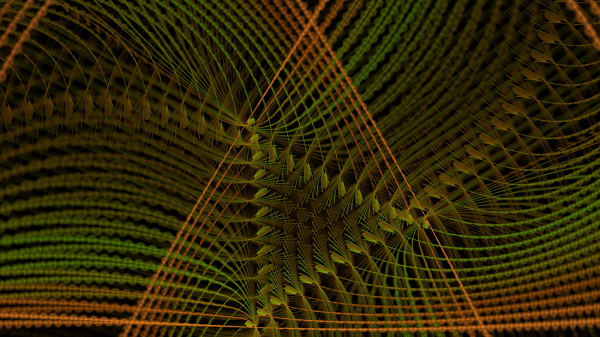BY LETTER
Alternepistemes
Culture and Society > Metaphysics > Esotericism
Culture and Society > Cultural Factors > Knowledge and Information
Culture and Society > Metaphysics > Philosophy
Culture and Society > Cultural Factors > Knowledge and Information
Culture and Society > Metaphysics > Philosophy
 Image from Avengium |
As with exontics and the automethodologies, the alternepistemes are now a fixture in much of Terragen space. Occasionally, they arouse concern, as with 'GT5&V3' (Pistil Heart classification scheme: 'Nurl++dc3.1') - the so-called 'Astatine Lick Alternepisteme'. GT5&V3 claimed that it was possible to acquire new and unique knowledge through either licking, chewing, swallowing, or even defecating bars of astatine. Curious modosophonts would irradiate themselves almost to the point of death, requiring assistance from friendly AI to regain optimal health. When asked what they had learned, adherents of GT5&V3 would share things that meant little to others - as is often the case with alternepistemes. As such, critics of alternepistemes claim that they are just novel mysticisms, while supporters counter that knowledge currently has no 'hard limits' - and might not be equally distributed. Critics might then say that alternepistemes are fads for the bored (a popular rejoinder), while supporters might retort with the latest report from the Reality Intertextualization Project - which they would believe validates their claims. Pleas from either side to transapient wisdom almost invariably result in statements incomprehensible to the modosophonts.
Regardless of their much-contested validity in ril, alternepistemes have achieved a strong influence in certain Terragen virchworlds. In these virchworlds, dwellers construct realities which make the effects of alternepistemes more tangible. There are vigorous debates over the authenticity of these speculative knowledges, as well as their applicability to R/L. This is especially the case when alternepistemes are combined with exontics and/or automethodologies, megethics, and sprath [EAMS or AAMS] to make profoundly exotic virch scenarios - some of which are claimed to give even the Superiors pause.
Many xenomodosophonts in Terragen space appear to have native analogues to alternepistemes. When asked to proffer an opinion on alternepistemes, however, the Meistersingers have characterized them as (approximate translations) 'conscientiously petite', 'gossamer!', and 'lovingly plain'. It is hoped that the Meistersingers will one day elaborate on their statements.
Related Articles
- Automethodology
- Ontological Conservatives - Text by M. Alan Kazlev from Anders Sandberg's Transhuman terminology
"Basement reality dwellers", people who regard physical reality as fundamentally important and simulated/emulated realities as bad, due to fear of the unknown elements or the effects of such simulated realities. They dislike solid state civilizations, and are generally suspicious or fearful of SI:1 and higher entities. Most belong to luddite, prim, or other reactionary groups. - Ontological Zones - Text by M. Alan Kazlev
[1] in esotericism the gradations of reality from the most subtle to the most concrete (e.g. matter); sometimes also called "zones of thought".
[2] in virch refers to different digital modalities, not always sequential. - Ontology
- Translogic
Appears in Topics
Development Notes
Text by Frogworld5
Initially published on 29 January 2019.
Initially published on 29 January 2019.






